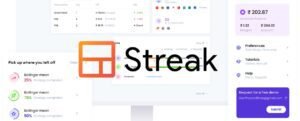In today’s fast-paced, tech-driven world, digital tools can be powerful allies in managing mental health. Technology offers innovative ways to support emotional well-being, from meditation apps to mental wellness trackers. This guide provides insights into using apps and tech practices to enhance mental health.
Understanding the Role of Technology in Mental Health
While tech is often associated with stress and overstimulation, it can also be a valuable resource for promoting mental well-being. When used mindfully, the right tools can help improve focus, reduce anxiety, and foster emotional resilience.
The Benefits of Mental Health Apps
Mental health apps provide accessible, on-demand support for managing stress, anxiety, and depression. They allow individuals to access therapeutic tools and guidance anytime, making it easier to develop healthy mental habits.
- Convenience and Accessibility: These apps make mental health resources available whenever and wherever needed, removing barriers like location and cost.
- Personalized Support: Many apps are designed to offer personalized features, such as daily reminders, mood trackers, and tailored content, ensuring that users receive support that meets their unique needs.
Choosing the Right Tech for Your Needs
With so many options available, choosing tools that align with your specific mental health goals is essential. Whether you’re looking to manage stress or build mindfulness, understanding the different types of apps and practices is key to getting started.
Incorporate Meditation Apps for Stress Relief
Meditation and mindfulness apps are the most popular tools for improving mental health. These apps guide users through relaxation exercises, breathing techniques, and mindfulness practices designed to reduce stress and anxiety.
Popular Meditation Apps to Try
Several well-known apps offer guided meditation programs:
- Headspace: Known for its user-friendly interface and a wide range of meditations, Headspace helps users build mindfulness skills and improve focus.
- Calm: With calming visuals and soundscapes, Calm offers guided meditations, sleep stories, and breathing exercises that promote relaxation and better sleep.
- Insight Timer: This free app features a large library of guided meditations, mindfulness courses, and a meditation timer, which is ideal for beginners and experienced meditators.
Setting a Meditation Routine with Technology
Using a meditation app consistently can help you form healthy habits. Start small by scheduling just five minutes each day for guided meditation. Over time, gradually increase the length of your sessions as your mindfulness skills improve.
- Set Reminders: Many meditation apps have built-in reminder features that prompt you to meditate simultaneously daily, helping you build a sustainable routine.
- Track Your Progress: Some apps allow users to track their meditation streaks and milestones, which can motivate continued practice.
Use Mood and Sleep Trackers to Monitor Your Well-being
Mood and sleep trackers offer valuable insights into how your daily activities and habits impact your mental health. These apps help identify patterns and triggers, enabling you to make informed decisions about your emotional well-being.
How Mood Trackers Improve Self-Awareness
Mood-tracking apps allow users to log their emotions throughout the day, helping to uncover triggers for stress, anxiety, or depression. By identifying these patterns, you can better manage your mental health and seek help when needed.
- Apps to Try: Apps like Moodfit and Daylio allow users to record their emotions, track habits, and generate reports that highlight mood trends.
- Benefits: Over time, these tools provide a clearer picture of your mental health, making it easier to address emotional challenges before they escalate.
Improving Sleep Quality with Tech
Quality sleep is crucial for mental health, and sleep-tracking apps help identify rest disruptions. These apps monitor your sleep cycles and provide personalized tips for improving sleep hygiene.
- Sleep Tracking Apps: Sleep Cycle and Pillow monitor your sleep patterns, offering insights into how long and deeply you sleep.
- Smart Alarms: These apps often include smart alarms that wake you during the lightest phase of sleep, helping you feel more rested and alert in the morning.
Engage in Cognitive Behavioral Therapy (CBT) Apps for Managing Anxiety and Depression
Cognitive Behavioral Therapy (CBT) is a proven method for treating anxiety, depression, and other mental health challenges. Several apps provide CBT-based tools that help users manage negative thoughts and develop healthier thought patterns.
CBT Apps for Mental Health
CBT apps guide users through exercises designed to reframe negative thinking and improve emotional regulation. These apps are often used alongside traditional therapy but can also be effective as a stand-alone resource.
- Popular CBT Apps: Apps like Woebot and Sanvello offer users easy access to CBT techniques, allowing them to practice cognitive restructuring and thought journaling skills.
- How They Work: These apps use evidence-based techniques to challenge negative thought patterns and encourage users to engage in positive activities that boost mood.
Integrating CBT into Your Daily Routine
Consistency is key for CBT apps to be effective. Set aside time each day to engage with the app’s exercises, and log your thoughts and emotions regularly.
- Daily Check-ins: Many CBT apps offer daily check-in features, encouraging users to reflect on their thoughts and feelings.
- Action Plans: Based on the app’s guidance, create action plans for managing stress or anxiety. It can include practicing relaxation techniques or changing negative self-talk patterns.
Use Fitness Apps to Boost Mental Wellness
Physical activity directly impacts mental health, and fitness apps make it easier to incorporate regular exercise into your routine. Exercise reduces stress, improves mood, and enhances cognitive function.
Fitness Apps for Mental Health
Fitness apps like Nike Training Club, FitOn, and MyFitnessPal offer customized workout plans that can be done at home or in the gym. Many apps also include mindfulness and meditation features, combining physical activity with mental relaxation.
- Mental Health Benefits of Exercise: Exercise increases the production of endorphins, natural mood lifters. It also helps reduce symptoms of anxiety and depression by promoting relaxation and better sleep.
- Setting Fitness Goals: Use fitness apps to set achievable exercise goals that align with your mental health needs. Whether it’s daily yoga, running, or strength training, regular physical activity can improve emotional resilience.
Combining Physical and Mental Wellness
Integrating fitness into your mental health routine can maximize your overall well-being. Pairing a fitness app with mindfulness or meditation exercises can create a holistic approach to mental wellness.
- Combine Workouts with Mindfulness: Many fitness apps offer cool-down stretches or post-workout meditations to promote relaxation and reduce stress.
- Track Your Progress: Most fitness apps allow users to track their physical and mental progress, helping them stay motivated and focused on long-term wellness.
Practice Digital Detox for Mental Clarity
While technology offers numerous benefits, taking breaks is important to avoid digital overload. A digital detox allows you to disconnect from devices and create space for mental clarity and relaxation.
What is a Digital Detox?
A digital detox involves intentionally stepping away from technology—social media, smartphones, and computers—to focus on other activities. It’s an opportunity to recharge mentally and reduce the overstimulation that often comes with constant device use.
- Benefits of a Detox: Regular digital detoxes can lower stress levels, improve focus, and enhance sleep quality.
- When to Take a Break: If you feel overwhelmed by constant notifications or social media, a digital detox can help you regain control over your time and mental space.
Apps to Help You Disconnect
Ironically, technology can help you take a break from it. Apps like Moment and Forest track screen time and encourage users to take breaks by limiting device use.
- Moment: This app tracks your phone use and allows you to set daily screen time limits.
- Forest: Forest helps users focus by encouraging them to stay off their phones. A tree grows in a virtual forest for every set period of device-free time, providing a visual reward for staying focused.
Conclusion
Enhancing your mental health with tech is about using the right apps and practices that align with your personal needs. Whether meditation, mood tracking, fitness, or cognitive behavioral therapy, technology offers innovative tools to help you stay mindful and improve emotional well-being. Incorporating these apps into your daily routine and practicing digital balance can foster a healthier relationship with technology and yourself.










